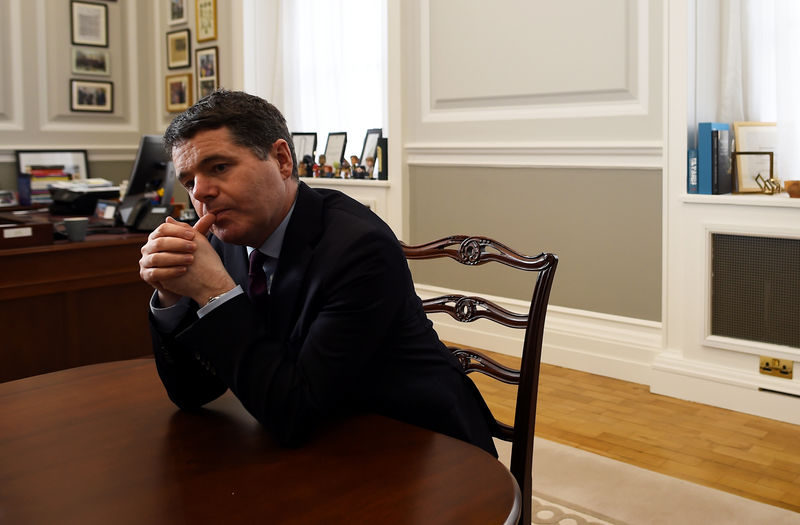By Padraic Halpin
DUBLIN (Reuters) - Ireland's concerns over how the European Union should proceed with taxing large digital businesses are shared by a growing number of countries, Finance Minister Paschal Donohoe told Reuters on Monday.
Italy, France, Germany and Spain are pushing to change tax legislation for tech corporations accused of paying too little tax in the EU but have faced resistance from smaller nations like Ireland, who fear the reform could hurt their economies.
Ireland wants any tax reforms to be coordinated on a global basis and while the European Commission has pledged to follow the work being spearheaded by OECD in this area, it has also kept open the option of acting unilaterally.
"From talking bilaterally to a number of my (EU) colleagues since the meeting we had in Estonia (in September), the concerns that we have in relation to digital taxation are broadly shared...I would say by a growing number of countries," Donohoe said in an interview in his Dublin office.
"If we bring forward measures relating to digital taxation, they're going to have to apply equally to international, local and European companies and I think as that is better understood, the need for debate and care about how we look at that tax policy will only grow."
Ireland's low 12.5 percent corporate tax rate has long made it a hub for investment from the likes of Google (O:GOOGL) and Facebook (O:FB). Dublin has found an ally in Hungary on the issue and has also been boosting alliances with Nordic and Baltic states since like-minded Britain voted in 2016 to leave the EU.
Donohoe said such alliances would help with his nomination of Irish central bank chief Philip Lane for the post of European Central Bank vice president.
Lane is so far the only declared candidate two days before nominations close but Donohoe is "certain" there will be at least one more, likely proposed by Spain. Its economy minister Luis de Guindos has long been considered the favorite for the job.
ECONOMY OVERHEATING?
Donohoe, who added the finance ministry to his brief as public expenditure minister in June, inherited an economy that had recovered rapidly from collapse a decade ago and is almost certain to have been the best performing in Europe for a fourth successive year in 2017.
Having warned just weeks into his new role that Ireland must be careful not to overheat the economy, Donohoe said on Monday those risks remained unchanged but that he did not believe the economy is currently overheating.
"We still believe there are people who are not working at the moment who can work again, who want to work again and economic activity has to get to the point to move them back into paid employment," the 43-year-old economics graduate said.
"Secondly, if I look at the wage growth that is taking place in the economy, while it does vary very strongly sector to sector, on average it is in line with the kind of growth rate in national income that we are seeing at the moment."

Donohoe, whose department last forecast in October that the economy would grow by 3.5 percent in 2018, said he was confident that growth would come in at 3.5 to 3.75 percent this year.